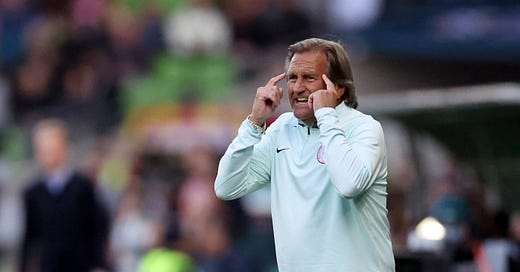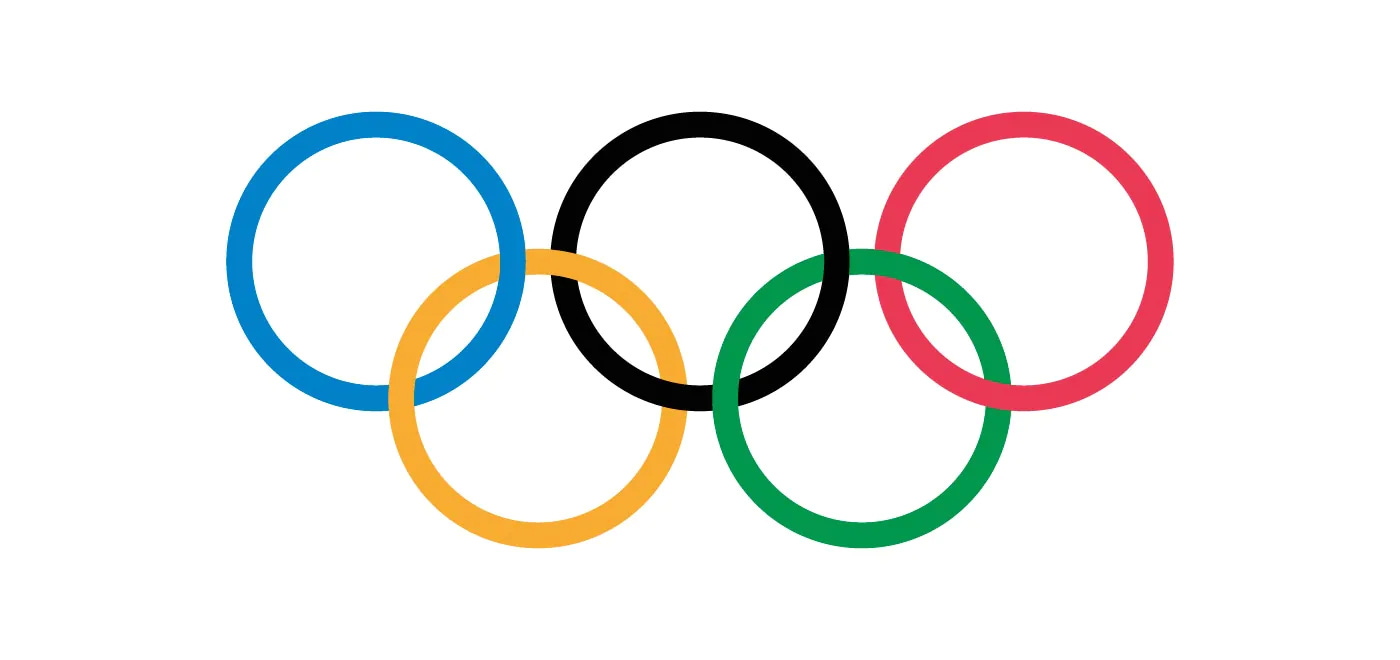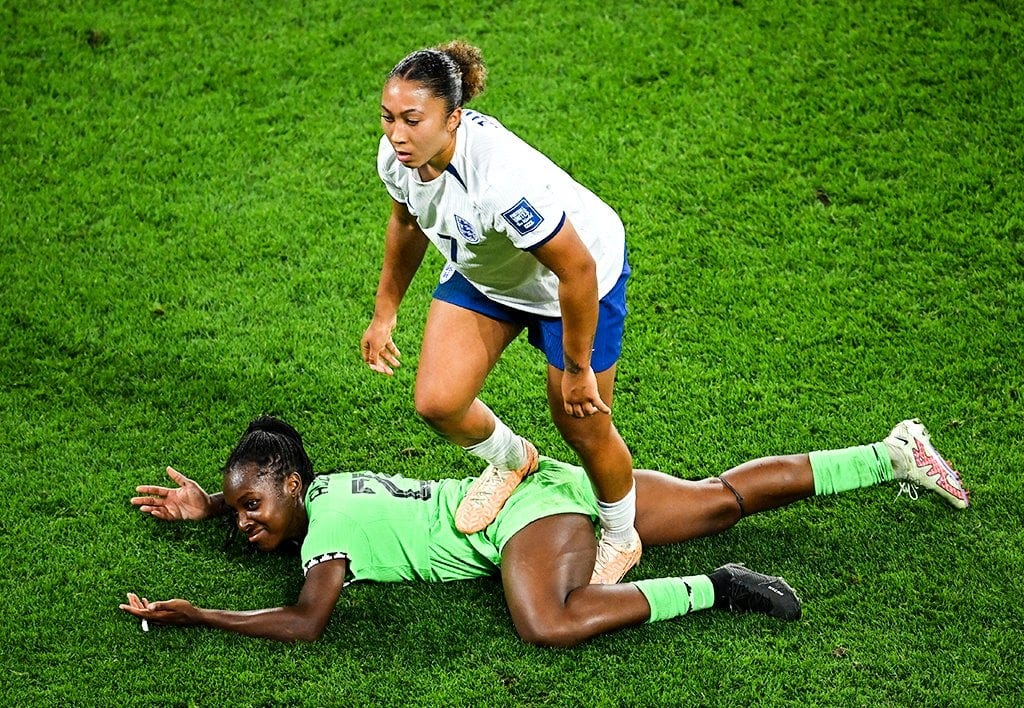Waldrum: The reckoning
Coming out of Nigeria’s valiant effort against England, the consensus seems to be that Randy Waldrum has earned the right to continue in the Super Falcons’ role. I’m not entirely convinced…
It says a lot that, when Chloe Kelly spanked home the penalty that won England a place in the World Cup Round of 16, the overwhelming feeling in the Nigeria camp was of devastation.
A penalty shoot-out is the cruellest way to decide a football match, but this outcome stung a little more for the fact that, for large swathes of Monday’s encounter, the Lionesses were there for the taking.
Sarina Wiegman’s side seemed stunned by the intensity of the Super Falcons, but in truth so was everyone: having effectively erected a bunker for their Group Stage campaign, here Randy Waldrum’s side pushed up and imposed themselves physically on the European champions, committing to a man-to-man press that kept England from getting any proper rhythm. The result was a surprisingly open match that, on the balance of play, was edged by Nigeria.
It was an impressive enough performance – and set of performances, to take the entire tournament as a whole – to change the complexion of the conversation around Waldrum, salvaging his stock from the Mariana Trench whence it sank following Nigeria’s disastrous outing at the 2022 Women’s Africa Cup of Nations (WAFCON).
Now, he enjoys popular support, his image rehabilitated. Where before the tournament he was a dead man walking, in bad odour with his employers for his straight talking, now a renewal of terms is a serious consideration.
Here’s the thing though: some caution might be in order.
Case for
Over the course of the next 18 months, Nigeria will have to undertake qualification for both the Olympics in Paris and the WAFCON in Morocco, as well as prosecute the tournaments themselves, should they qualify.
It is a rather small window within which to alter the Super Falcons’ coaching set-up.
While, in the men’s game, the World Cup is typically the end of a cycle, the presence and prominence of the Olympics in the women’s game throws something of a spanner in the works. Unlike for the men, there is no age restriction for entry; with participating nations able to field their senior squads, the women’s football event is second in prominence and heft to the World Cup.
The first set of qualifiers for the 2024 WAFCON is set to be played in the September international window, with Nigeria taking on Sao Tome and Principe home and away. Following this, the Super Falcons would face the winner of the tie between Cape Verde and Liberia before potentially advancing to the finals.
For the Olympics qualifying, Nigeria will kick off with a two-legged tie against Ethiopia in late October, and then will likely have to go through Cameroon and South Africa – in February and April respectively – in order to book a place in Paris.
Clearly, it is no easy road. Upheaval at this point would risk making it even more arduous.
There is also the fact that, whatever his peccadillos, Waldrum appears to have a healthy relationship with the squad. He has shown a willingness to go to bat for them, pissing off both the Nigerian media and the Nigeria Football Federation (NFF) in turn, and has not been shy about standing his ground when it comes to selections.
This counts for something: Nigeria is a difficult environment for any coach to work in, but the Texan has done a good job of insulating himself, mixing pragmatism with bursts of refreshing honesty. It is a high-wire act regardless, but Waldrum has kept his chin, and the pole, well up.
Finally, there is the simple fact of what the 66-year-old was able to achieve in Australia. For the first time ever, the Super Falcons went through a World Cup without defeat – this against three teams ranked inside the world’s top 10 – while keeping three clean sheets in the process. Not only was this a first for Nigeria, it was a continental milestone as well.
By no objective measure was his custodianship a failure, or even below par. It would, therefore, stand to reason that he be allowed to continue in the role.
Case against
Even within that England performance of discipline and heroism, there was reason for concern. If, as many felt afterward, Nigeria deserved the victory – and certainly Expected Goals (xG) bore that impression out – their inability to attain it was not entirely down to misfortune.
First, recall the story of the game. Nigeria began on the front foot, pressuring the Lionesses and frequently winning the ball in the middle third. From there, they were extremely direct and progressive with their passing, transferring the ball quickly into the final third and creating favourable situations in England’s defensive third.
This persisted until the 81st minute when Lauren James, having endured the most inhospitable of examinations from Halimatu Ayinde all game, betrayed her frustrations with a stamp on Michelle Alozie and was duly sent to the showers.
Nigeria then played with a numerical advantage for 40 minutes, and in that time mustered five shots – one every eight minutes, having to that point fashioned a shot every 5.33 minutes – with one on target.
Credit and reward are quite different things. That Waldrum deserves credit for his team’s performance is not in doubt. But does that mean the performance definitively demonstrates his aptitude to carry the team forward?
It's akin to a player contract. An extension may, in part, be an acknowledgement of prior excellence, but it is not a reward – the reward is the weekly wages and bonuses they banked over the duration of their previous contract. What it is, most of all, is a call to action, a vote of confidence by their employer in their ability to continue to perform to the same, or better levels.
While the football showed us that Waldrum is able to set a team up to be organised and resolute, with every player certain in their roles, it did little to assure that he is capable of creating a team that can play on the front foot. He had a good opportunity here: James’ sending off was his chance to, not only win the game, but pitch for the job going forward.
He failed to win the room; while the outcome validated the anecdotal wisdom that it can be harder to play against 10 than 11 (both coaches did as well), with the onus on him, Waldrum lacked clarity, his choices muddled and hampering his own team.
First, he needlessly switched to a back three, moving right-back Michelle Alozie to left wing-back and pushing Francisca Ordega onto the front line. Then, by the second half of extra time, he reverted to a back four with Rasheedat Ajibade as the de facto right-back (Alozie still on the left, mind, this time a winger). Then he brought on Desire Oparanozie – the one true target man in the squad – with six minutes to play, when his team had been needlessly slinging long balls into the final third since the start of extra time.
And what about those long balls? With a numerical deficit, it was England who were the more lucid side, never having to worry about their own loss of physical conditioning against an opponent that had no idea how to calmly work the opening with patient possession. Waldrum fashioned a monstrously fit team with the means and instincts for the ambush, but without the efficiency that approach demands and, paradoxically, without the patience that typically underpins it.
Why does the ability to play on the front foot even matter, you ask? Well, it was the inability to do so that undermined Nigeria at the 2022 WAFCON. Applaud the structural integrity of the Super Falcons in Australia all you want, but it is easier to appreciate that when up against opposition that wishes to dictate terms; when faced with teams for whom conceding the initiative is the only viable strategy, as is mostly the case in Africa, all that organisation with nothing concerted going forward can quickly come to seem stodgy and drab.
We know this because it already happened.
The key to combating that is to develop a malleable approach with its own built-in imperatives, one whose approach does not depend on fighting on the opponents’ timing exclusively. That way, the Super Falcons can both dominate back home and not just avoid disgrace on the world stage, but actually capitalise on opportunity when it arises.
Waldrum has been in the post for over three years now. In that time, he has had more camps and helmed more friendly matches than any other national team manager in at least the last 35 years. This is as far as his philosophy goes. If he could produce a collective capable of both seizing the initiative and either breaking teams down with attacking combinations, and ruthlessly exploiting mistakes, he would have done so already.
If you are of the school that avers the sanctity of the result, here is the cold truth: Nigeria won one match out of four, played over 200 minutes without scoring a goal after Asisat Oshoala’s finish against Australia, and averaged fewer shots on target per 90 than the likes of Panama and Zambia.
When Waldrum’s side needed a win against limited debutants Ireland to avoid a meeting with England, they were so utterly toothless that, by the second half, the Irish figured they might as well try for a result and began to force Nigeria back. By the end, the nine-time African champions and World Cup ever-presents were hanging on.
That is the upshot of being a ‘big’ nation/team without the necessary threat to back it up: ‘smaller’ teams become emboldened. When it comes to conflict, implied physical potential is more than half the battle; confrontation only ensues when it is clear that, behind the curtain, lights and smoke, there is only puny mortality.
Shorn of that fear factor, and bereft of the most basic organisation, it would be all too easy for the next wave of African nations to get within arm’s length. Already, South Africa, Morocco, Zambia and Cameroon know they can go toe to toe; Senegal, ravenous in their hunger for conquest, are coming along as well, as are the likes of Cote d’Ivoire, Mali and Algeria.
It is not as easy as giving up continental dominance in favour of competitiveness on the global stage either, much as it is tempting to consider WAFCON success old hat. The other function of the continental showpiece is as qualification for the World Cup, and so it is just as important to secure home turf regardless.
Whatever one feels about Waldrum’s work in Oz, a far more nuanced and informed discussion is required than that which is currently taking place. However, if one were to boil it down, it would go something like this: Waldrum represents short-term stability, albeit of the low-ceiling, low-upside variety, while a parting of ways in favour of a more progressive style (underpinned nevertheless by the solidity the Texan has fostered) could produce short term instability, but would almost certainly lead to long-term gain.
Take your pick, but beware the bill. It comes due.






Wonderful piece. Spoke exactly my mind
Great piece by the way. Well analyzed.